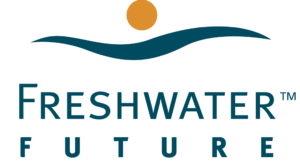Make Your Voice Heard: The New Lead and Copper Draft Rule is Out!
Now open for 60 days of public comment, the U.S. EPA released a new version of the Lead and Copper Rule this week that dictates how drinking water systems prevent and respond to lead in drinking water. The proposed changes include many of the priorities that Freshwater Future has pushed for, including full replacement of all lead and galvanized water lines in 10 years, stronger public communication requirements, and more robust water sampling procedures.
Freshwater Future is dedicated to ensuring that the EPA hears and acts upon the voices of Great Lakes communities that have been deeply impacted by lead poisoning – including Flint, Benton Harbor, and so many other residents. Stay tuned in the coming weeks as we offer opportunities to learn more and submit written or verbal comments to ensure the rule improvements protect public health!
See Freshwater Future’s full statement here.
Give Your Year-End Gift and support NO Lead is Safe!
Your year-end contribution to Freshwater Future is vital in our fight to eliminate lead and other contaminants from our freshwater resources. Your financial gift will go a long way to provide people with more help and information about keeping their families safe and will strengthen and uplift community action on water issues with more tools and resources groups need to implement long-term solutions and protect our Great Lakes water resources. Thank you for caring, sharing, and giving your support toward this critical cause! You can help by clicking here!
Line 5 Tunnel Granted Permit by Michigan Public Service Commission
Last Friday, Michigan utility regulators voted 2-0 with one abstention to grant a key permit for the Line 5 tunnel under the Straits of Mackinac. This decision brings the Canadian oil company a step closer to implementing the controversial project: rerouting a 4-mile section of the petroleum pipeline into a concrete tunnel. The Michigan Public Service Commission deemed the tunnel project the safest option, eliminating the perceived threat of a “catastrophic” oil spill posed by the current pipeline’s vulnerability to ship anchors.
Freshwater Future’s executive director Jill Ryan said of the ruling “this decision is another example of the state ignoring tribal rights, the health of the Great Lakes, and the seriousness of the climate crisis in favor of corporate interests. This may be a lost battle in the ongoing fight against Line 5, but there are many more to come and we will continue to offer opportunities to use your voice.”
The ruling faces strong opposition from environmental advocates and Indigenous nations, who argue it violates tribal treaty rights, threatens the entire Great Lakes ecosystem, and perpetuates fossil fuel dependency. The project’s estimated completion by 2024 is increasingly unlikely due to ballooning costs, and Enbridge awaits federal permits from the U.S. Army Corps of Engineers, expected in early 2026. We will keep you up to date with opportunities to use your voice.
Win! Proposed Golf Course on Wisconsin Lakeshore Park Blocked
Last week we reported on the advocacy of Freshwater Future grantees Friends of the Black River Forest (FBRF) fighting to block a land swap between the state and a manufacturing company. The swap was proposed to transfer five acres of Kohler-Andrae State Park on the shores of Lake Michigan in Sheboygan, Wisconsin to a company for a luxury golf course. We are so pleased to announce that the great advocacy of the Friends of the Black River Forest has paid off – Wisconsin Court of Appeals, District III, has upheld the reversal of a wetland fill permit for the proposed golf course.
Mary Faydash, FBRF President, states, “We are ecstatic and appreciate the court’s well-reasoned opinion. Disrupting wetland systems has far reaching impacts on groundwater, water bodies, hydrology, and habitat. This decision will become a valuable authority for future cases.”
Elevated Lead Levels Found in Pennsylvania Schools’ Drinking Water
Pennsylvania schools, including Pittsburgh Public Schools, face lead contamination in their drinking water, with tests revealing elevated lead levels in various districts. Despite the EPA action level being 15 parts per billion (10 parts per billion with the new draft Lead and Copper rule), some schools registered results dozens of times higher in specific faucets. Concerns arise as 91% of lead tests across Pennsylvania schools return positive results, prompting calls for stronger regulations and allocating $30 million over three years to eliminate unsafe lead levels in Pennsylvania schools by January 1, 2026. No lead is safe and removing lead pipes and infrastructure is one of the most effective ways to reduce exposure.








